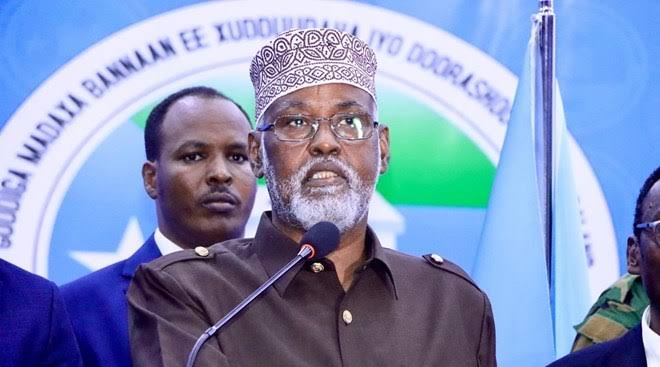Facebook Twitter (X) Instagram Somali Magazine - People's Magazine
Following a brief but intense battle two weeks ago between Jubaland forces and Somalia’s national army in the Ras Kamboni region, Jubaland has expressed its desire to de-escalate tensions and open channels for dialogue with the federal government in Mogadishu. The clash, which resulted in Jubaland gaining the upper hand, has prompted the regional state to pursue a peaceful resolution with the Somali government while capitalizing on its strategic position.
Rising Tensions and Battle at Ras Kamboni
The recent fighting erupted in the Ras Kamboni area, located in southern Somalia, where Jubaland forces faced off with the Somali national army. Although the fighting was short-lived, it raised serious concerns over the potential for further escalation, particularly given the longstanding political rift between Jubaland and the central government in Mogadishu. The conflict was seen as part of a broader struggle for control over territories and resources, with both sides vying for influence over southern Somalia.
Jubaland’s victory in the confrontation has provided the regional authorities with leverage, and now, they are looking to use this advantage to initiate a dialogue with the federal government. The aim is to ease the tensions that have been simmering for years, as both parties seek a way forward that would allow for greater cooperation and governance.
Seeking Peaceful Solutions: Jubaland’s Position
Jubaland President Sheikh Ahmed Madobe has expressed a commitment to de-escalating the situation, signaling a readiness to engage in negotiations with the Somali federal government. Despite the recent victory, Madobe’s government is eager to explore peaceful options to resolve the conflict and stabilize the region. Jubaland hopes that its strengthened position will allow it to present a more favorable bargaining stance in discussions with Mogadishu.
Madobe’s government also sees the easing of tensions between Somalia and Ethiopia as a potential avenue for progress. Thanks to Türkiye’s diplomatic mediation, relations between Ethiopia and Somalia have improved, creating an environment conducive to resolving internal conflicts within Somalia. The breakthrough in Ethiopian-Somali relations could serve as a model for resolving tensions in the Jubaland region, making local negotiations more likely to succeed.
The Role of Turkish Mediation in Regional Stability
The role of Türkiye in the Horn of Africa continues to grow, particularly in its capacity as a mediator in Somali political affairs. Türkiye’s mediation efforts have played a crucial part in improving diplomatic relations between Somalia and Ethiopia, a significant breakthrough that has implications for the wider region.
In the case of Jubaland, Türkiye’s involvement could also help create a more stable environment for dialogue. The Turkish government has been instrumental in facilitating peace talks and supporting diplomatic initiatives aimed at addressing conflicts in the region. Given its successful mediation between Ethiopia and Somalia earlier this month, Türkiye’s influence may be pivotal in encouraging both the Jubaland administration and the Somali federal government to pursue peaceful negotiations.
Regional Implications and Future Prospects
The diplomatic and political developments in Jubaland have far-reaching implications for the stability of southern Somalia and the broader Horn of Africa. Should Jubaland and Mogadishu succeed in opening a dialogue, it could mark the beginning of a new phase in Somali politics, one where regional autonomy and federal unity are balanced in a way that promotes peace and cooperation.
Moreover, the regional dynamics are closely linked to Ethiopia’s growing influence in Somalia. Ethiopia’s military presence in Somalia, as well as its security and diplomatic role, could further impact negotiations between Jubaland and the Somali government. The prospect of Ethiopian support for the Somali government could serve as a counterbalance to Jubaland’s ambitions for greater autonomy, making the upcoming negotiations a critical moment in the region’s political evolution.
Conclusion: A Path to Peace and Cooperation
The recent developments in Jubaland are a clear indication that despite ongoing tensions, there is a significant opportunity for peace in southern Somalia. With Jubaland eager to de-escalate and engage in dialogue, and Türkiye’s mediation potentially facilitating the process, there is hope for a resolution to the conflict. The coming months will be crucial as all parties work toward a peaceful and lasting solution that addresses both the political and security concerns of the region.

